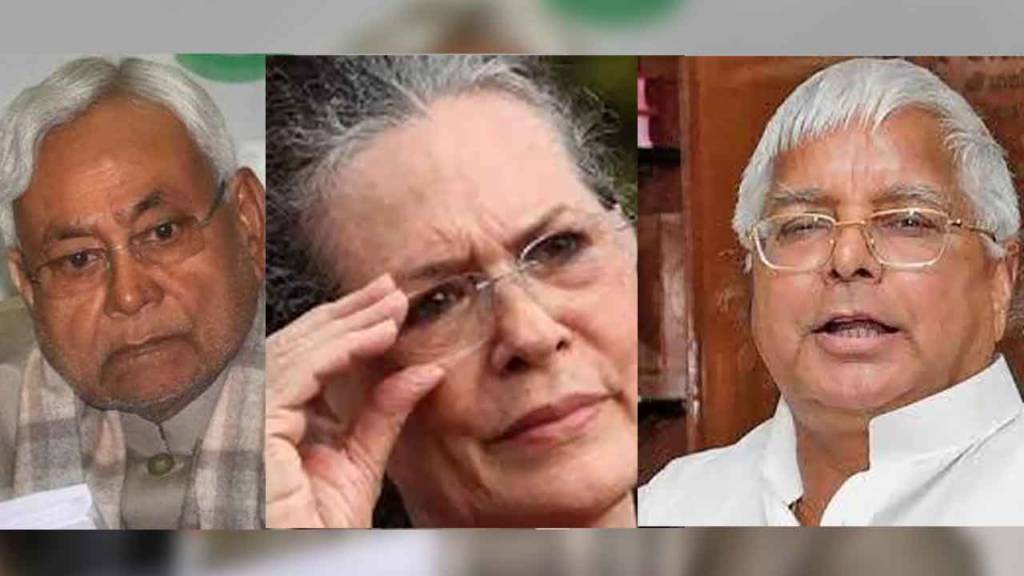One defining feature of India’s regional parties almost across all the states has been their total dependence on caste identity. This, however, has gone a sea change with the emergence of the Modi wave.
Caste divisions have blurred in recent years, giving way to a pan-India, Hindu national identity. The regional satraps which survived on caste arithmetic and coalitions are the worst hit.
It is in this context that the Nitish Kumar led JD(U) had demanded a nation-wide caste-based census.
The move is that much more critical for it comes in the backdrop of 2020 Assembly polls. Within the BJP-led NDA, the JD(U)’s demand for a nation-wide caste census is being seen with different angles.
While some believe that this is a pressure tactic on the bigger ally- the BJP, some others feel that this may be an alternative poll plank replacing the long-pending demand for granting special status to Bihar.
Interestingly, other parties too have come out supporting it vociferously. The reasons are not very difficult to decipher. Regional parties like the RJD have survived for decades on the basis of caste identity and politics.
The traditional pattern of voting in India has been that caste A votes for a particular party and caste B votes for a particular party. Such strong caste divisions never really allowed the emergence of Hindu national identity.
While Muslim vote was mobilised by such regional satraps, Hindu vote almost invariably got divided into several factions. Hindu identity could never really become a unified, homogenous voting bloc.
But Indian politics underwent a major disruption during the 2014 Lok Sabha polls when a strong Modi wave helped the BJP in breaching caste divisions. Even in the state of Bihar and Uttar Pradesh, which have been traditionally seen as hotbeds of caste politics, there was a mobilisation of Hindu votes in favour of the BJP, overcoming caste equations.
The same factor got reaffirmed in the 2017 Uttar Pradesh Assembly polls, and then again in 2019 Lok Sabha polls. Last year, those who abhor the BJP had pinned their hopes on coalitions in the two states- Uttar Pradesh and Bihar. The SP-BSP alliance in Uttar Pradesh, in particular, was seen as something that could end PM Modi’s juggernaut.
However, those banking on such caste-based parties were in for a big surprise. The number of those who still vote their caste instead of casting their votes has undergone a sharp decline.
BJP has beaten caste-based politics thrice in the state of Uttar Pradesh- 2014 Lok Sabha polls, 2017 Assembly polls and 2019 Lok Sabha polls. Even in Bihar, the rise of the Modi factor has breached the caste fortress. The results made it further clear that the Modi wave had prevailed over caste equations.
BJP’s vote share has become more diversified now. There was a time when the BJP was seen as a party of the Upper Castes with little to offer for Dalits. The regional, caste-based parties like the BSP generally grabbed a major share of the Dalit vote. But the rise of a nationalist Hindu identity has changed things.
In 2014 Lok Sabha polls, the BJP secured 24% Dalit vote, which deepened further to 34% Dalit vote in the 2019 General Elections. In fact, the BJP increased its vote share among all caste groups showing that a pan-India identity beyond caste considerations is in making.
The 2019 Lok Sabha polls had three broad dimensions to it in the context of the BJP- National Security (Balakot airstrikes), PM Modi’s strong pro-development image and finally the rise of the Hindu identity. All three factors led to the demolition of caste politics.
The post-Mandal era had led to the emergence of regional, caste-based parties like the BSP, SP, RJD, JD (U), DMK, TDP, etc. Most of these parties face an existential crisis today as the rise of the Modi factor renders caste politics highly irrelevant.
In such circumstances, it is only natural that these parties want a Caste census. Even though such an exercise has never been carried out, political outfits, especially those dependant on caste identities, might be aware of how the findings of such a census might help them in reviving caste politics.
With a nationwide Caste census, they might want to create emotive issues in order to ensure that the blurred caste lines are re-drawn effectively. They must be hoping that this will help in making caste groups highly conscious of their caste identity once again.
Modi government must guard against such demands of a Caste census. Creation of a cherished pan-India, Nationalist Hindu identity has been a tedious, cumbersome process. A nationwide Caste census could easily regress us back to the days of caste politics.
